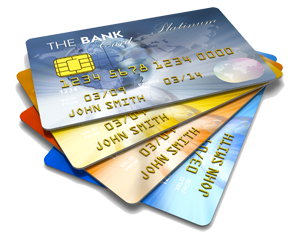 One of the main reasons consumers seek bankruptcy relief is overwhelming credit card debt. If you qualify for a Chapter 7 bankruptcy, you could discharge most if not all of your unsecured credit card debt but there are circumstances where your credit card debt may not be dischargeable.
One of the main reasons consumers seek bankruptcy relief is overwhelming credit card debt. If you qualify for a Chapter 7 bankruptcy, you could discharge most if not all of your unsecured credit card debt but there are circumstances where your credit card debt may not be dischargeable.
A bankruptcy places your creditors in order of priority. If your bankrupt estate has assets that are not exempt, the trustee could seize those assets and sell them off to repay your creditors in order of priority. Creditors who are unsecured or lack collateral for their loans are lowest in priority.
In most Chapter 7 bankruptcies, however, there are few if any unprotected assets available for distribution. In a no-assets case, unsecured creditors like credit card issuers are unable to collect anything for the unpaid balances on their cards and the debt is discharged.
Challenging the Discharge
There are situations, however, where the card issuer or company may successfully challenge the discharge. These include the following:
- You obtained the credit card by falsifying information on the application
- You never intended to repay the credit card company
- The creditor has a purchase money security interest in the item
If you bought an expensive item with credit, you may have signed a purchase money security agreement even though you may have paid for the item with your credit card like a Sears card. In a bankruptcy, the creditor can claim that you either must return the item, pay its market value, or continue making installment payments for this item.
The more common issue that arises in a bankruptcy is your lack of intent to repay the creditor. Your payment history is vital in this instance as is your conduct in using the card. A sudden change in the card’s use before filing is suspect. Here are some common mistakes that debtors make with their credit cards before filing for bankruptcy:
- You made a number of large or expensive purchases with your card in the months leading to the bankruptcy filing.
- You took out one or more cash advances.
- You took an expensive vacation or traveled shortly before filing.
- You maxed out the card.
- You recently were issued the card and made a number of expensive purchases.
- You made no payments on the new card.
- You made no payments or only a few minimum payments after making large purchases or using it extensively just before filing.
- You were unemployed while making these purchases.
Avoiding or Resolving Challenges to Discharge
If you are likely to have a challenge or objection to your bankruptcy discharge, you might want to consider one of the following strategies for either avoiding or resolving the potential challenge:
- Wait at least 4-6 months before filing and make more than the minimum payments for each month. The longer you wait and make payments, the less likely the creditor can show that you lacked the intent to repay it.
- Be prepared to settle with the creditor if or when the creditor makes an objection to dischargeability.
- Consult with your bankruptcy attorney to see if a trial on this issue is advisable. If you win, you might be able collect attorney’s fees if the court finds that the claim was not “substantially justified.”
- Consult with an attorney to see if a debt management program is more amenable.
Being prepared and having the advice of a knowledgeable bankruptcy attorney before you file will help you to avoid embarrassing, costly and potentially criminal acts.
The type of objection involved in most of the above situations is made when the creditor files what is called an adversarial proceeding in the bankruptcy court. This proceeding is considered to be an action separate from the bankruptcy itself and has it’s own court file and it’s own set of documents. Typically when you hire a lawyer to do a bankruptcy, the attorney fee will not include representation in adversarial proceedings. The retainer agreement with your lawyer will probably actually EXCLUDE adversarial proceedings. Defending those is a practice area all by itself that many ordinary bankruptcy lawyers stay away from.
A good bankruptcy lawyer will screen your case in an effort to be sure that adversarial proceedings are unlikely. If there is such a proceeding on the horizon, the creditor will tend to threaten an objection before actually filing one with the court. Your regular bankruptcy lawyer may either try to talk the creditor out of it or try to settle the claim before the creditor files; but if the creditor actually gets to the point of filing the objection, you can expect an additional attorney fee and perhaps a referral to another attorney.
This article is for general information purposes only and is not intended to be legal advice. Kelly Law Office is a Debt Relief Agency helping people file for relief under the federal bankruptcy code.






I never knew that it is recommended to wait at least 4-6 months before filling more than the minimum payments for each month. My son has a lot of credit card debt from being addicted to shopping, and we need to find good information about resolving this issue. We will probably have to hire a lawyer and see if he declares bankruptcy, but thank you for all the helpful information in this article.